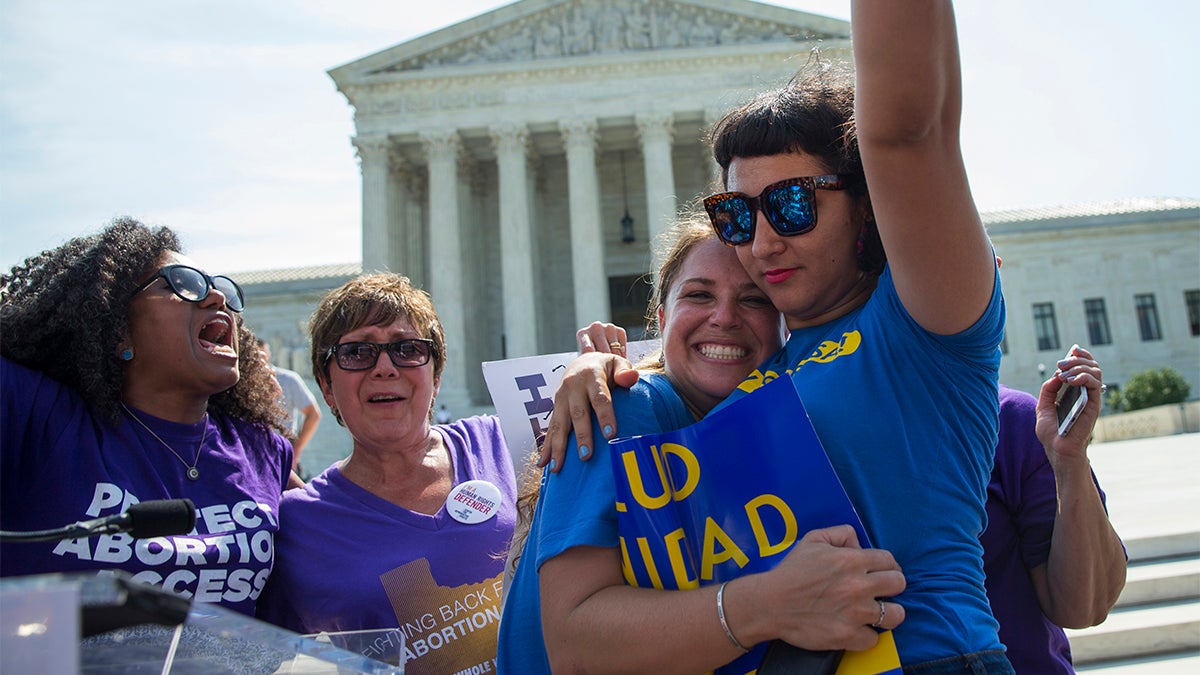Legislators debate reverberations for Pa. after Supreme Court ruling on Texas abortion law

Bethany Van Kampen
Last month, the U.S. Supreme Court struck down abortion regulations in Texas that some people say are very similar to rules on the books in Pennsylvania.
Pennsylvania Act 122 of 2011 requires abortion providers to follow the same rules as outpatient surgical centers.
Pennsylvania House Health Committee chairman Matthew Baker said the law protects women’s health and was a response to the case of West Philadelphia Dr. Kermit Gosnell.
“All of the violations, the deaths, the squalid conditions,” Baker said.
Gosnell was convicted of murder for terminating late-term pregnancies and then killing the babies born after that procedure.
Baker said the “horrors” outlined in the Philadelphia grand Jury report was a template for the changes in Pennsylvania. That backdrop is different than the Texas case, Baker said, and he thinks the rules struck down in Texas are different too.
“I doubt very much if that’s going to have any bearing on Pennsylvania’s law,” Baker said, a Republican who represents Tioga County and parts of parts of Bradford and Potter counties.
“Representative Baker is wrong, it is going to change things,” said state Sen. Daylin Leach, a Democrat representing Montgomery and Delaware counties.
He’s planning to introduce legislation to abolish the 2011 Pennsylvania law.
“Now we can either repeal it or we can go to court and strike it down,” Leach said. “One way or another, it’s not going to survive.”
Leach said Act 122 is a TRAP law — targeted regulation of abortion providers — an effort to restrict abortion care and close clinics by making it too expensive and onerous for them to stay open.
“Forcing them to put in elevators even when all the procedures are on the first floor for example,” said Leach.
“People who don’t believe in a woman’s right to choose know that they can’t make it illegal under current Supreme Court ruling, but they can — in their view — make it impossible,” Leach said.
“We are in the process of poring through many, many restrictions, many of which we believe are burdensome and have no corresponding health benefit,” said Sue Frietsche, senior staff attorney for the Women’s Law Project in Pittsburgh.
Her team represents abortion care providers.
“The [Texas] decision has injected so much hope into the pro-choice movement in Pennsylvania and across the whole country really, it’s been a long time since we’ve had that kind of good news,” Frietsche said.
The ruling means that a health regulation aimed at abortion care must consider both its burden and benefits. When the “supposed purpose” of the restriction is to protect women’s health, the law has to actually do that, she said.
“I’m certain that some of the provisions that have been enforced [in Pennsylvania] can’t stand up to the Whole Women’s Health standard, and I expect that there will be providers who will be challenging them in one form or another,” she said.
WHYY is your source for fact-based, in-depth journalism and information. As a nonprofit organization, we rely on financial support from readers like you. Please give today.

